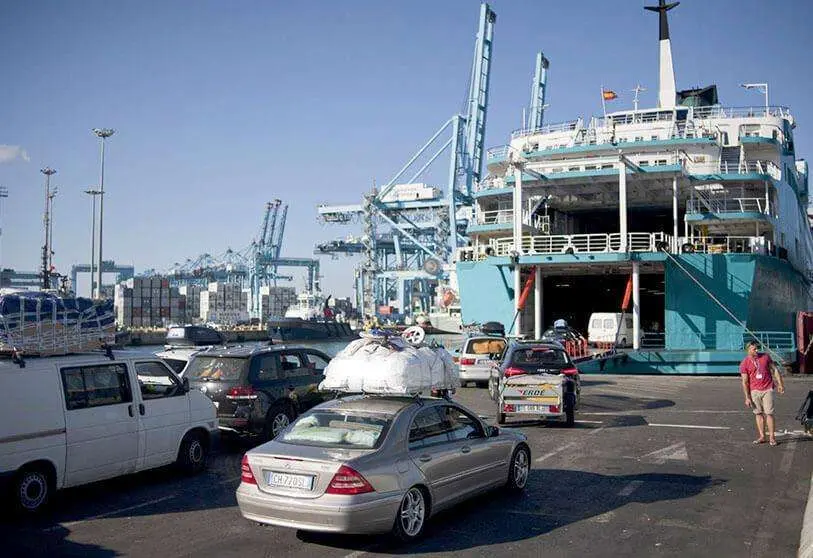Año nuevo, desembarco nuevo

The first contingent of seasonal workers will arrive in Spain, mainly to work in the red fruit sector in the Andalusian province of Huelva. The thousands of Moroccans arriving on the peninsula will come in stages over the next few weeks. The first Moroccan seasonal workers, with contracts at source, will move to the province of Huelva to take part in the red fruit harvesting campaign, mainly strawberries, according to forecasts by the Government and the sector. In this way, according to the Government Sub-delegation in Huelva, last week the visas were being prepared to bring the first phase of these workers, some of whom have already been in Huelva for more than one season.
"Everything is ready for the first boats to start arriving next week, with an estimated 4,000 women expected to arrive in January. For this season, the Spanish and Moroccan governments have agreed to increase the number of contracts at source to 15,350", as reported in the newspaper Huelva Información. The decision was taken in Tangiers last December in the Coordination Meeting of the Circular Migration Agreement, attended by the Director of Migrations, Santiago Jerga, and representatives of the Moroccan Government and the business organisations Asaja, Freshuelva, UPA, the Federation of Andalusian Cooperatives, the Association of Citrus Growers. La Humana (ACPH) and Fresón de Palos.

This figure represents an increase of 5,000 more people than had initially been estimated, which equals the pre-pandemic figures and responds to the claims that have been made in recent weeks by the sector on the need to increase the quota. 12,600 Moroccan seasonal workers participated in the 2022 campaign. In 2021 there were 12,743 seasonal workers. This recruitment programme at source dates back to 2001 and each year offers more than 12,000 Moroccan families an example of regular, safe and orderly migration, according to the Spanish government.
Thanks to the number of routes and their high frequency, Alawi citizens will have little difficulty in reaching Spain. The Secretary of State for Migration in Algeciras stated in 2022 that "Spain is a pioneering country in recruitment at origin, through a regular migration process that makes it possible to unite a labour supply with a demand for professionals in a sector. In today's interdependent economy, the future belongs to those countries that are capable of establishing dynamic cooperation mechanisms to link economic activity and labour supply". The province of Huelva is the main strawberry producing area in Europe.

The industry forms part of a globalised agri-food chain that is subject to the large multinational corporations responsible for agricultural expenditure and commercial distribution. This is a highly labour-intensive form of production in which controlling labour costs is one of the main strategies used by farmers to ensure profit margins. As a result, since the 1990s, migrant labour has been exploited by the industry in various forms and has been employed under very precarious conditions. From 2000 onwards, the informal women workers who worked in the sector in the 1990s were replaced by temporary women "hired at source".
In Morocco and Eastern European countries, the fact that recruitment has been exclusively for women from the beginning has led to a significant feminisation of the labour market in this sector. Likewise, the Huelva Agrarian Organisation and the Moroccan authorities, in the framework of the Aeneas programme, have determined that contracts should only be extended to married or widowed women with children under 14 years of age. Similarly, while recruitment of origin is seen as a model of "ethical and orderly immigration", it is a very imperfect means of ensuring the protection of workers' rights. The conditions faced by Moroccan women working at origin can only be understood by taking a selection of the various situations of vulnerability to which they are exposed.

Due to their socio-demographic characteristics, these women already face the risk of social exclusion in their countries. They arrive in Spain without knowing the language, the information is inaccurate or contrary to what they want to find, their documents are often confiscated upon arrival in Spain and not always returned to them, and they do not have insurance. Our country is reducing the impact of this situation. Their workplaces are isolated, they live where they work, in plantations far from population centres, limiting contact with other people and making access to basic services difficult, these spaces become ghettos and everyone knows what is going on, but no one does anything.








